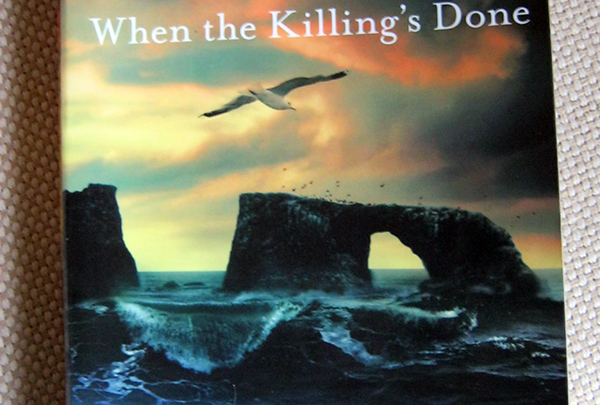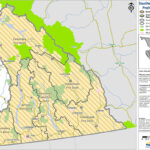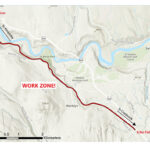Home »

Boyle good on place but misses major question
Book Review
By Derryll White
Boyle, T.C. (2011). When the Killing’s Done.
 If there is a Swedish soul, and I devoutly believe there is, I think it takes the form of the environment. I believe this is the external force that Sweden salutes and celebrates, not nationalism or celebrity-worship. So when during my two months in Sweden I found this novel of T.C. Boyle’s on the English shelves of the Lund Bibliotek, I thought, “Yes, let’s read this in Sweden, at least in part in the beautiful huge Botanical Garden with it’s 7,000 different species of plants.
If there is a Swedish soul, and I devoutly believe there is, I think it takes the form of the environment. I believe this is the external force that Sweden salutes and celebrates, not nationalism or celebrity-worship. So when during my two months in Sweden I found this novel of T.C. Boyle’s on the English shelves of the Lund Bibliotek, I thought, “Yes, let’s read this in Sweden, at least in part in the beautiful huge Botanical Garden with it’s 7,000 different species of plants.
T.C. Boyle, born Thomas John and then became Tom Coraghessan, is an American writer who is very good on place. He has 14 novels to his credit and often explores the theme of the ruthlessness and unpredictability of nature.
In ‘When the Killing’s Done’ Boyle puts the reader on the Channel Islands, and doesn’t depart for very much. The recounting of the landscape is relentless, and interesting. It gives context to the characters and a stage to play the environmental drama out on.
But the drama never achieves real clarity. The reader is given the facts of population growth and the impacts of invasive species on natural species. The author spends some energy on the concept of population control, abortion and the countervailing need to procreate. Nowhere, however, does he really make it clear what the most invasive species of all is – homo sapiens. We dance all around it in the novel but he never takes the reader face-to-face with the real problem.
‘When the Killing Is Done’ does raise some questions about man’s supposedly inalienable right to interfere with nature. It is decently written. There are some interesting societal analyses that I paid attention to. The book just left me frustrated because I felt the author sidestepped the major question. I may read another of Boyle’s novels, but it won’t be in the near future.
********
Excerpts from the novel:
RHYME OF THE ANCIENT MARINER – …she could hear the high-pitched hectoring whine of her twelfth-grade English teacher, Mr. Parminter, rising up somewhere out of the depths of her consciousness – it was about nature, the power of it, the hugeness. Don’t press your luck. Don’t upset the balance. Let the albatross be. Let all creatures be, for that matter…
OIL – …ignoring the cars lined up at the light with their wipers clapping and the exhaust coiling out of their tailpipes in the last petrochemical gasp of the black stuff pooled up under layers of shale in Saudi Arabia and Nigeria and Venezuela, the death of the earth, the death of everything…
WITHDRAWAL – No, his business is high-end, appealing to a need rather than a want, the society closing down day by day, people investing in home entertainment because they’re increasingly reluctant to even go out into their back yard, let alone to the movie theatre or anyplace else.
ANIMAL RIGHTS – “The assumption that animals are without rights and the illusion that our treatment of them has no moral significance is a positively outrageous example of Western crudity and barbarity. Universal compassion is the only guarantee to morality.”
NEWS – And the news – what was the news anyway but a long continuous trumped up shriek of impending doom and current disaster that just made everybody sour and distrustful and hateful of their fellow man? She didn’t need it. Didn’t miss it.
RAVENS – Where they came from she couldn’t say – it was a mystery. There was always a resident population hanging round the slaughtering shed or the midden out back, but as soon as lambing season began they must have quintupled their numbers, flying in from the other islands or maybe even the coast. Fancisco said they were the souls of the Indians, las almas de los indios, come back from the dead to plague the white men who’d displaced them, and maybe he was right.
MATERIAL THINGS – Guilt – that’s what defines her usage. Guilt over being alive, needing things, consuming things, turning the tap or lighting the flame under the gas burner.
WINE TASTING – …after the second stop – at a place he loved, the cellars cold and dank, the great oaken casks standing in ranks like monuments to all those corrupted livers of the past.
PREGNACY – Because she’s a living thing, that’s why, and living things reproduce. The only discernible purpose of life is to create more life – any biologist knows that.
LOVE – And when she hugs him to her, feeling the heat of him, the familiar contours of his body, the touch of his lips on hers, she can’t let go – or not yet. Not till she communicates her joy in the language that precedes language, flesh to flesh.
 – Derryll White once wrote books but now chooses to read and write about them. When not reading he writes history for the web at www.basininstitute.org.
– Derryll White once wrote books but now chooses to read and write about them. When not reading he writes history for the web at www.basininstitute.org.







